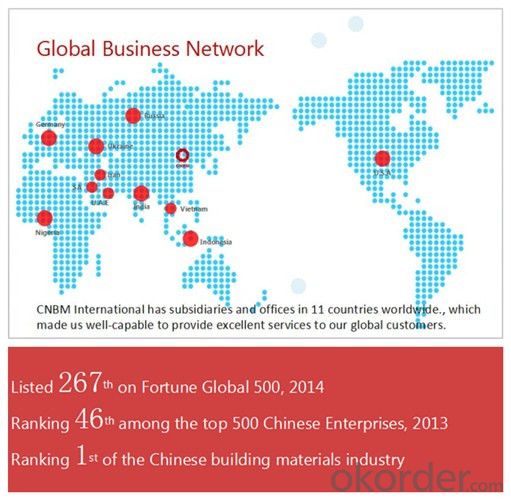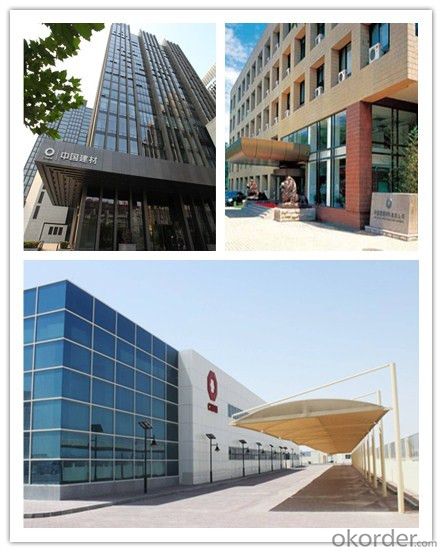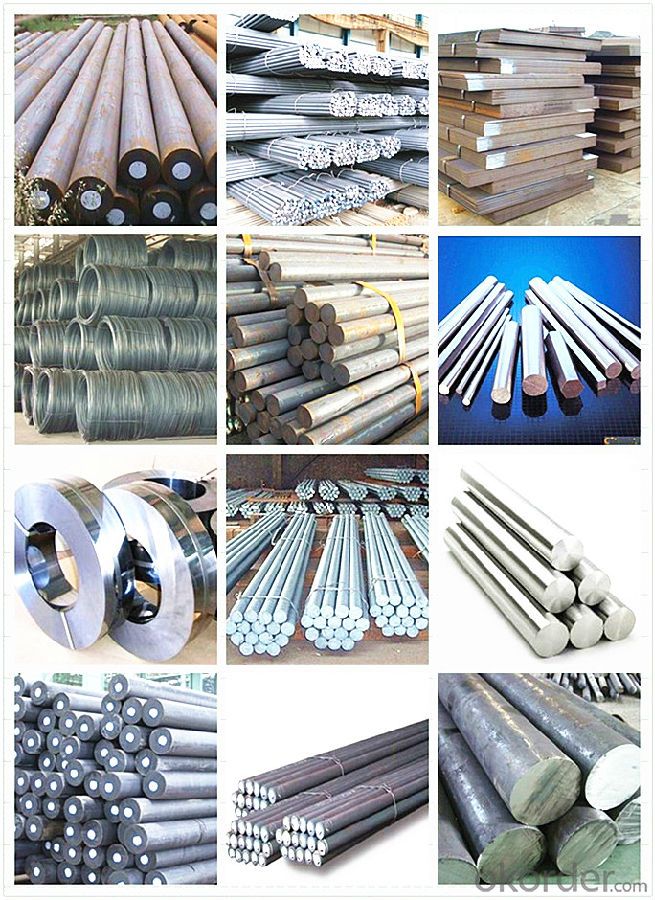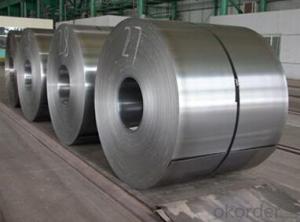Grade JIS SGCH G550 Galvanized Steel Coil
- Loading Port:
- Tianjin
- Payment Terms:
- TT OR LC
- Min Order Qty:
- 3 m.t.
- Supply Capability:
- 10000 m.t./month
OKorder Service Pledge
OKorder Financial Service
You Might Also Like
Item specifice
Grade JIS SGCH G550 Galvanized Steel Coil
Specification of Grade Grade JIS SGCH G550 Galvanized Steel Coil
1. Galvanized Steel Coil
(1) Width: 600-1570mm
(2) Thickness: 0.13-5.0mm
(3) Grade: JIS G3302-SGCC-SGC570, SGCH (full hard-G550), SGHC-SGH540
EN10346-DX51D+Z, DX53D+Z, S250GD-S550GD
STM A653-CS-B, SS255-SS550
(4) Zinc Coating: Z40g/m2~Z500g/m2 (both side total coating thickness)
2. Galvalume Steel Coil
(1) Width: 600~1500mm
(2) Thickness: 0.15~2.30mm
(3) Grade: JIS G3321-SGLCC, SGLC400-570, (G550)
EN10346-DX51D+AZ, DX53D+AZ, S250-S550
ASTM A792M CS-B, SS255-SS550
(4) AZ Coating: AZ50~AZ185g/m2
3. Prepainted Galvanized Steel Coil (PPGI)
(1) Width: 600~1250mm
(2) Thickness: 0.19~1.50mm
(3) Grade: JIS G3312-CGCC, CGC340-570, (G550)
ASTM A755M CS-B, SS255-SS550
(4) Zinc Coating: Z40g/m2~Z500g/m2 (both side total coating thickness)
4. Prepainted Galvanized Steel Coil (PPGL)
(1) Width: 600~1250mm
(2) Thickness: 0.20~1.50mm
(3) Grade: JIS G3322-CGLCC, CGLC340-570, (G550)
ASTM A755M CS-B, SS255-SS550
(4) AZ Coating: AZ50~AZ185g/m2 (both side total coating thickness)
5. Cold Rolled Steel Coil (Soft) (for further information, pls click the product name)
(1) Width: 600~1570mm
(2) Thickness: 0.13~2.50mm
(3) Grade: JIS G3141-SPCC-SD, SPCD-SD, SPEC-SD
JIS G3135-SPFC 340/390/440
EN10130-DC01, DC03, DC04
SAE1006, SAE1008
ASTM A424-TypeⅡ
6. Cold Rolled Steel Coil (Full Hard) (for further information, pls click the product name)
(1) Width: 600~1570mm
(2) Thickness: 0.13~2.50mm
(3) Grade: JIS G3141-SPCC-1B, SPCC-1D
7. Hot Rolled Steel Coil
(1) Width: 1000~1524mm
(2) Thickness: 1.20~16.5mm, other thickness can be negotiation
(3) Grade: JIS G3101-SS400, JIS G3132-SPHT1/2/3, ASTM A36, Q195, Q235 etc.
Company Introduction of the Grade JIS SGCH G550 Galvanized Steel Coil
CNBM International Corporation is the most import and export platform of CNBM group(China National Building Material Group Corporation) ,which is a state-owned enterprise, ranked in 270th of Fortune Global 500 in 2015.
With its advantages, CNBM International are mainly concentrate on Cement, Glass, Iron and Steel, Ceramics industries and devotes herself for supplying high quality series of refractories as well as technical consultancies and logistics solution.


Packaging & Delivery Grade Grade JIS SGCH G550 Galvanized Steel Coil
Packaging Detail | Sea worthy packing /as per customer's packing instruction |
Delivery Detail | 15 ~ 40 days after receiving the deposit |
Products Show:

FAQ:
Are you a trading company or manufacturer? | Manufacturer |
What’s the MOQ? | 3 metric ton |
What’s your delivery time? | 15-35 days after downpayment received |
Do you Accept OEM service? | Yes |
what’s your delivery terms? | FOB/CFR/CIF |
What's the Payment Terms? | 30% as deposit,70% before shipment by T/T |
Western Union acceptable for small amount. | |
L/C acceptable for large amount. | |
Scrow ,Paybal,Alipay are also ok | |
Why choose us? | Chose happens because of quality, then price, We can give you both. Additionally, we can also offer professional products inquiry, products knowledge train (for agents), smooth goods delivery, excellent customer solution proposals. |
What's your available port of Shipment? | Main Port, China |
What’s your featured services? | Our service formula: good quality+ good price+ good service=customer's trust
|
Where are your Market? | Covering more than 160 countries in the world |
- Q:What are the main characteristics of creep-resistant steel forgings?
- Creep-resistant steel forgings possess a range of essential qualities that render them suitable for applications involving high temperatures and prolonged stress and heat exposure. To begin with, these forgings are renowned for their exceptional resistance to creep deformation. Creep refers to the gradual deformation that occurs under constant load and elevated temperatures over an extended period. These forgings are specifically designed to withstand such deformation, retaining their shape and structural integrity. Consequently, they are ideal for use in environments with high temperatures, such as turbine blades, boiler components, and other similar settings. Another crucial characteristic of creep-resistant steel forgings is their impressive strength. These forgings are manufactured using alloying elements like chromium, molybdenum, and vanadium, which enhance their tensile strength. As a result, they exhibit excellent resistance to deformation and fracture under high-stress conditions. This strength is essential for ensuring that the forgings can endure the demands of various applications and perform reliably over time. Furthermore, creep-resistant steel forgings demonstrate good resistance to oxidation and corrosion. The presence of alloying elements creates a protective layer on the surface, safeguarding against oxidation and corrosion at elevated temperatures. This resistance is vital in preventing the degradation of the material and maintaining its mechanical properties, even in harsh environments. Moreover, creep-resistant steel forgings offer outstanding thermal stability. They can endure extreme temperature fluctuations without significant dimensional changes or loss of mechanical strength. This stability is particularly critical in applications that involve rapid heating and cooling cycles, ensuring that the forgings can sustain their performance under challenging conditions. Additionally, creep-resistant steel forgings possess excellent fatigue resistance. Fatigue refers to the weakening of a material resulting from cyclic loading, which is particularly relevant in high-temperature applications due to the combination of stress and heat. These forgings are designed to withstand cyclic loading and retain their mechanical properties, thus reducing the risk of fatigue failure and enhancing the overall reliability of the component. In conclusion, the primary characteristics of creep-resistant steel forgings encompass resistance to creep deformation, high strength, good oxidation and corrosion resistance, thermal stability, and excellent fatigue resistance. These qualities establish creep-resistant steel forgings as a reliable and durable choice for applications requiring resistance to high temperatures, stress, and prolonged exposure to challenging environments.
- Q:How does special steel contribute to the packaging industry?
- Special steel contributes to the packaging industry by providing high strength, durability, and corrosion resistance, making it ideal for manufacturing packaging materials and machinery. It ensures the integrity and safety of packaging products, prevents damage during transportation, and extends the shelf life of perishable goods. Additionally, special steel's versatility allows for innovative packaging designs and customization, meeting the specific requirements and demands of different industries.
- Q:How does special steel contribute to the mining aftermarket industry?
- The mining aftermarket industry heavily relies on special steel to improve durability, strength, and resistance in extreme conditions. This particular type of steel is explicitly engineered to withstand the demanding environments and heavy loads associated with mining operations. Within the mining aftermarket industry, special steel is utilized to manufacture a wide range of equipment and components, including drill bits, cutting tools, crusher parts, and wear plates. These components endure intense wear and tear due to the abrasive materials present in mining. Special steel, possessing exceptional hardness and toughness, guarantees that these components can endure harsh conditions and maintain peak performance for extended periods. Moreover, special steel facilitates the creation of more efficient and productive mining equipment. By implementing high-strength steel alloys, manufacturers can design lighter equipment without compromising on strength and durability. This outcome leads to increased productivity and reduced operating costs for mining companies. Special steel also contributes significantly to the safety of mining operations. The robustness and reliability of steel components reduce the risk of unforeseen failures, which can result in accidents and downtime. Additionally, special steel exhibits resistance to extreme temperatures, corrosion, and other environmental factors commonly encountered in mining, minimizing the need for frequent replacements and repairs. In conclusion, special steel is indispensable to the mining aftermarket industry as it provides the essential strength, durability, and resistance to extreme conditions required for mining equipment and components. Its presence enhances productivity, lowers operating costs, and ensures the safety of mining operations, making it a crucial material within the mining industry.
- Q:How is free-cutting steel used in the manufacturing of screws and bolts?
- Free-cutting steel is commonly used in the manufacturing of screws and bolts due to its excellent machinability. The steel's composition includes additives such as sulfur, lead, or bismuth, which act as lubricants during the machining process, making it easier to cut and shape the material. This results in a faster and more efficient production of screws and bolts, reducing manufacturing time and costs.
- Q:How does special steel contribute to the manufacturing of precision instruments?
- The manufacturing of precision instruments heavily relies on the use of special steel. This material possesses unique characteristics and properties that make it an ideal choice for such applications. To begin with, special steel boasts exceptional strength and durability, enabling precision instruments to withstand extreme conditions, heavy loads, and repetitive use. This quality ensures the longevity and reliability of these instruments, which is of utmost importance in critical industries such as aerospace, automotive, and medical. Furthermore, special steel exhibits excellent corrosion resistance, safeguarding the instruments from deterioration over time. This becomes particularly crucial for precision instruments that are exposed to a wide array of elements, chemicals, or moisture during their operation or storage. In addition, special steel provides high thermal stability, allowing precision instruments to maintain their accuracy even in varying temperature environments. This proves vital for instruments used in industries where temperature fluctuations may impact their performance, such as laboratories or manufacturing plants. Moreover, special steel can be tailored and customized to meet specific design requirements. It can be easily machined, formed, or welded into intricate shapes and parts, enabling manufacturers to create precision instruments with complex geometries and tight tolerances. This level of precision is essential for instruments utilized in fields like metrology, microscopy, or nanotechnology. Additionally, special steel possesses excellent magnetic properties, which can be advantageous for precision instruments that rely on magnetic fields for their operation. Examples of such instruments include magnetic resonance imaging (MRI) machines, compasses, or magnetometers. In conclusion, special steel significantly contributes to the manufacturing of precision instruments by providing strength, durability, corrosion resistance, thermal stability, customization options, and magnetic properties. These characteristics guarantee the performance, accuracy, and longevity of precision instruments, rendering them indispensable in various industries.
- Q:Is special steel resistant to chemical corrosion?
- Special steel, which is also known as stainless steel, is typically resistant to chemical corrosion. It is an alloy that contains at least 10.5% chromium. The presence of chromium in the steel forms a protective layer on the surface, preventing corrosion. This layer is stable and shields the steel from reacting with chemicals and corrosive substances. Furthermore, special steel may contain other elements like nickel, molybdenum, and titanium. These elements enhance its resistance to chemical corrosion, enabling the steel to withstand exposure to acids, alkalis, salts, and other corrosive agents commonly found in industrial and environmental settings. Nevertheless, it is important to consider that the resistance of special steel to chemical corrosion can vary based on its grade and composition. Different grades of stainless steel offer different levels of corrosion resistance. Therefore, it is crucial to select the appropriate grade depending on the intended application and the specific corrosive environment. To summarize, although special steel generally resists chemical corrosion, the level of resistance can differ depending on the grade and composition. Hence, it is essential to assess specific requirements and seek advice from experts to choose the most suitable special steel for a particular application.
- Q:How does special steel perform in renewable energy applications?
- Special steel is a key component in various renewable energy applications and plays a significant role in their performance and durability. The unique properties of special steel, such as its high strength, corrosion resistance, and temperature stability, make it an ideal choice for use in renewable energy technologies. One of the major renewable energy applications where special steel excels is in wind turbines. Wind turbine components, such as the tower, rotor blades, and gearbox, require materials that can withstand harsh environmental conditions and high mechanical loads. Special steel alloys offer excellent strength-to-weight ratios, allowing for lighter and more efficient turbine designs. Additionally, their corrosion resistance properties ensure longevity and reduced maintenance requirements, resulting in increased reliability and overall performance of the wind turbine. In solar power applications, special steel is used in the construction of solar panels and support structures. Solar panels require frames made of durable material to withstand external forces and extreme weather conditions. By utilizing special steel, solar panels can be manufactured to be lightweight, yet strong enough to support the weight of the photovoltaic cells. Furthermore, the corrosion resistance of special steel ensures that the panels remain intact, even in harsh environments. Moreover, special steel is also employed in the production of hydroelectric power. In hydro turbines, the corrosive nature of water and the high pressure and temperature conditions necessitate the use of materials that can withstand such environments. Special steel offers excellent resistance to corrosion, erosion, and cavitation, making it a reliable choice for hydroelectric power generation. Its strength and durability ensure the turbines can operate efficiently and withstand the forces exerted by the flowing water. Overall, special steel performs exceptionally well in renewable energy applications by enhancing the reliability, longevity, and efficiency of various technologies. Its unique properties make it an indispensable material in wind turbines, solar panels, and hydroelectric power generation, contributing to the overall advancement and sustainability of renewable energy systems.
- Q:Are there any disadvantages of using special steel?
- There are several disadvantages associated with the use of special steel. To begin with, special steel tends to be more expensive compared to regular steel. This is primarily due to the additional alloying elements and heat treatments involved in its production, which contribute to the higher cost. As a result, it may not be the most cost-effective option for applications where cost is a major factor. Furthermore, special steel may have limited availability in comparison to regular steel. It is often produced in smaller quantities and may only be obtainable from specific suppliers. This can lead to longer lead times and difficulties in sourcing the required amount of special steel, particularly for large-scale projects. Additionally, the increased complexity of working with special steel can pose challenges. It may require specialized knowledge, skills, and equipment for handling and processing. If the necessary expertise or resources are not readily available, this can result in higher manufacturing costs and potential delays in production. Moreover, some special steel grades with high strength and hardness can be more prone to brittleness. This means they may be susceptible to cracking or breaking under certain conditions, especially when exposed to extreme temperatures or sudden impact loads. This limitation can be a disadvantage in applications that require high toughness or resistance to fracture. Lastly, special steel may have limited applications due to its specific properties. While it offers advantages such as corrosion resistance, high temperature resistance, or improved mechanical properties, these benefits may not be relevant or necessary for every application. Consequently, using special steel in such cases may incur unnecessary expenses without any tangible benefits. In conclusion, special steel has its drawbacks, including higher costs, limited availability, increased complexity, potential brittleness, and limited applicability. Therefore, it is crucial to carefully consider the specific requirements of a project before opting for special steel.
- Q:How does special steel contribute to the elasticity of products?
- Special steel contributes to the elasticity of products due to its unique composition and manufacturing process. The elasticity of a material refers to its ability to return to its original shape or size after being deformed or stretched. In the case of special steel, its specific properties enhance the elasticity of products in several ways. Firstly, special steel is often alloyed with elements such as nickel, chromium, or vanadium, which improve its mechanical properties. These alloying elements modify the crystal structure of the steel, resulting in a material that has a higher yield strength and tensile strength. This increased strength allows the steel to withstand higher levels of stress and deformation without permanent deformation or failure. Additionally, the manufacturing process of special steel involves precise control over its microstructure. Through techniques such as heat treatment and cold working, the steel's grain size and distribution are optimized. This controlled microstructure enhances the material's elasticity by promoting a uniform deformation mechanism. When a product made from special steel is subjected to external forces or stress, the steel's microstructure allows for the redistribution of these forces, minimizing localized deformation and maximizing overall elasticity. Furthermore, special steel often possesses a high carbon content, which contributes to its elasticity. The carbon atoms within the steel form strong chemical bonds with the iron atoms, resulting in a material with increased hardness and resistance to deformation. This enhanced resistance to deformation allows the steel to exhibit greater elasticity when subjected to external forces. Overall, special steel's unique composition, precise manufacturing processes, and specific alloying elements all contribute to its ability to enhance the elasticity of products. By incorporating special steel into the design and construction of various products, manufacturers can ensure that these products can withstand deformation and return to their original shape, thus increasing their durability and longevity.
- Q:How does special steel contribute to the aerospace noise reduction?
- Special steel contributes to aerospace noise reduction in several ways. Firstly, it is used in the construction of aircraft engine components such as fan blades and turbine discs. These components are subject to high temperatures and pressure, and special steel helps maintain their structural integrity, reducing vibration and noise. Secondly, special steel is also used in the manufacturing of aircraft fuselage and wings, where it helps dampen vibrations caused by aerodynamic forces, thus reducing noise. Additionally, special steel can be used in the production of sound-absorbing materials, which are used to line the interior of aircraft cabins, further reducing noise levels and improving passenger comfort. Overall, the use of special steel in various aerospace applications plays a crucial role in minimizing noise and improving the overall acoustic performance of aircraft.
1. Manufacturer Overview |
|
|---|---|
| Location | |
| Year Established | |
| Annual Output Value | |
| Main Markets | |
| Company Certifications | |
2. Manufacturer Certificates |
|
|---|---|
| a) Certification Name | |
| Range | |
| Reference | |
| Validity Period | |
3. Manufacturer Capability |
|
|---|---|
| a)Trade Capacity | |
| Nearest Port | |
| Export Percentage | |
| No.of Employees in Trade Department | |
| Language Spoken: | |
| b)Factory Information | |
| Factory Size: | |
| No. of Production Lines | |
| Contract Manufacturing | |
| Product Price Range | |
Send your message to us
Grade JIS SGCH G550 Galvanized Steel Coil
- Loading Port:
- Tianjin
- Payment Terms:
- TT OR LC
- Min Order Qty:
- 3 m.t.
- Supply Capability:
- 10000 m.t./month
OKorder Service Pledge
OKorder Financial Service
Similar products
New products
Hot products
Related keywords
































